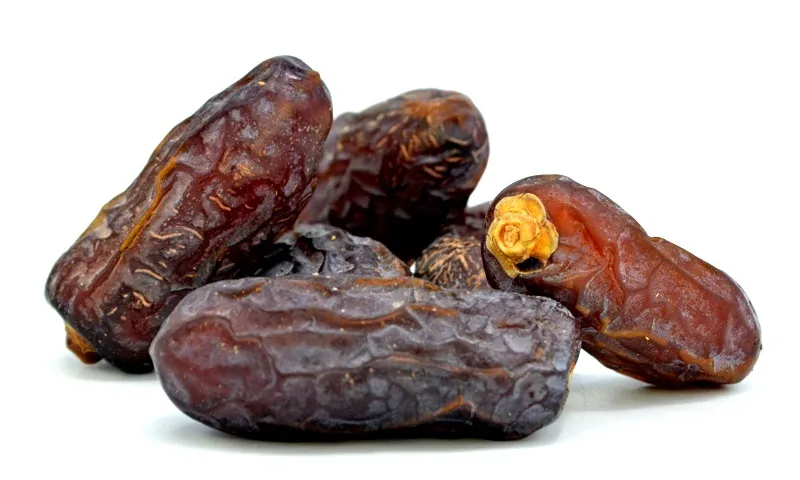
Food Safety and Compliance: A Guide for Dates Fruit Suppliers
1. Understanding Dates Fruit: Jual Kurma
Dates fruit, known as “kurma” in some regions, is a nutritious and versatile fruit that is widely consumed worldwide. With its sweet taste and soft texture, dates fruit is popular as a natural sweetener and is used in various culinary applications. Jual kurma refers to the practice of selling dates fruit, either as a supplier or a wholesaler. It is crucial for dates fruit suppliers and wholesalers to prioritize food safety and compliance with regulations to ensure the quality and integrity of their products.
2. Importance of Food Safety in Dates Fruit Supply Chain
2.1 Protecting Consumer Health
Ensuring food safety is of utmost importance in the dates fruit supply chain. Contaminated dates fruit can pose significant health risks to consumers, leading to foodborne illnesses and other adverse health effects. By implementing robust food safety measures, suppliers and wholesalers can protect consumer health and maintain their reputation in the market.
2.2 Building Consumer Trust
Consumers are becoming increasingly conscious of the quality and safety of the food they consume. By prioritizing food safety, dates fruit suppliers and wholesalers can build trust with their customers. Establishing a reputation for providing safe and high-quality dates fruit products can lead to customer loyalty and positive word-of-mouth, contributing to the growth and success of the business.
3. Quality Control Measures for Dates Fruit Suppliers
3.1 Supplier Selection and Evaluation
Choosing reliable and reputable dates fruit suppliers is the first step in ensuring food safety. Suppliers should be carefully evaluated based on their cultivation practices, handling procedures, and adherence to quality standards. Regular audits and inspections can help verify the supplier’s compliance with food safety regulations.
3.2 Harvesting and Handling Practices
Dates fruit should be harvested and handled using hygienic practices to minimize the risk of contamination. Proper washing, sorting, and packaging procedures should be followed to maintain the quality and safety of the fruit. Effective pest control measures should also be implemented to prevent infestation during storage and transportation.
4. Storage and Transportation Guidelines
4.1 Temperature and Humidity Control
Dates fruit should be stored and transported under controlled temperature and humidity conditions to prevent spoilage and maintain product quality. Suitable storage facilities, such as cold rooms or refrigerated containers, should be utilized to preserve the freshness of the fruit. Regular monitoring of temperature and humidity levels is essential to prevent any deviations that could compromise the safety of the product.
4.2 Packaging and Contamination Prevention
Proper packaging is crucial to protect dates fruit from physical damage and contamination. Packaging materials should be food-grade, non-toxic, and resistant to moisture. Adequate labeling should be included to provide consumers with essential information such as the product’s origin, expiration date, and handling instructions. Additionally, the implementation of strict hygiene practices during storage and transportation can help prevent cross-contamination.
5. Labeling Requirements and Regulatory Compliance
5.1 Product Information and Allergen Declarations
Dates fruit suppliers and wholesalers must comply with labeling requirements, providing accurate and comprehensive information about their products. This includes details such as the product name, ingredients, nutritional information, allergen declarations, and any necessary warnings or precautions. Clear and legible labels help consumers make informed choices and ensure transparency in the supply chain.
5.2 Regulatory Compliance
Compliance with local and international regulations is essential for dates fruit suppliers and wholesalers. It is crucial to stay updated on relevant food safety regulations, import/export requirements, and labeling standards in the target markets. Regular training and education on regulatory changes can help ensure ongoing compliance and prevent any legal issues.
6. Conclusion
In conclusion, ensuring food safety and compliance with regulations is vital for dates fruit suppliers and wholesalers. By implementing quality control measures, adhering to storage and transportation guidelines, and meeting labeling requirements, suppliers and wholesalers can maintain the safety and integrity of their products throughout the supply chain. Prioritizing food safety not only protects consumer health but also builds trustand confidence in the market. By upholding high standards of food safety and regulatory compliance, dates fruit suppliers and wholesalers can establish a strong reputation, foster customer loyalty, and drive business growth.
Key Highlights of the Blog:
– Introduction to dates fruit and the practice of jual kurma.
– Importance of prioritizing food safety and compliance in the dates fruit supply chain.
– The role of food safety in protecting consumer health and building consumer trust.
– Quality control measures for dates fruit suppliers, including supplier selection and evaluation.
– Harvesting and handling practices to ensure the safety and quality of dates fruit.
– Storage and transportation guidelines, emphasizing temperature and humidity control, as well as packaging and contamination prevention.
– Labeling requirements, including product information and allergen declarations, and the significance of regulatory compliance.
– Conclusion emphasizing the importance of food safety and regulatory compliance for dates fruit suppliers and wholesalers in maintaining product quality, consumer trust, and business growth.